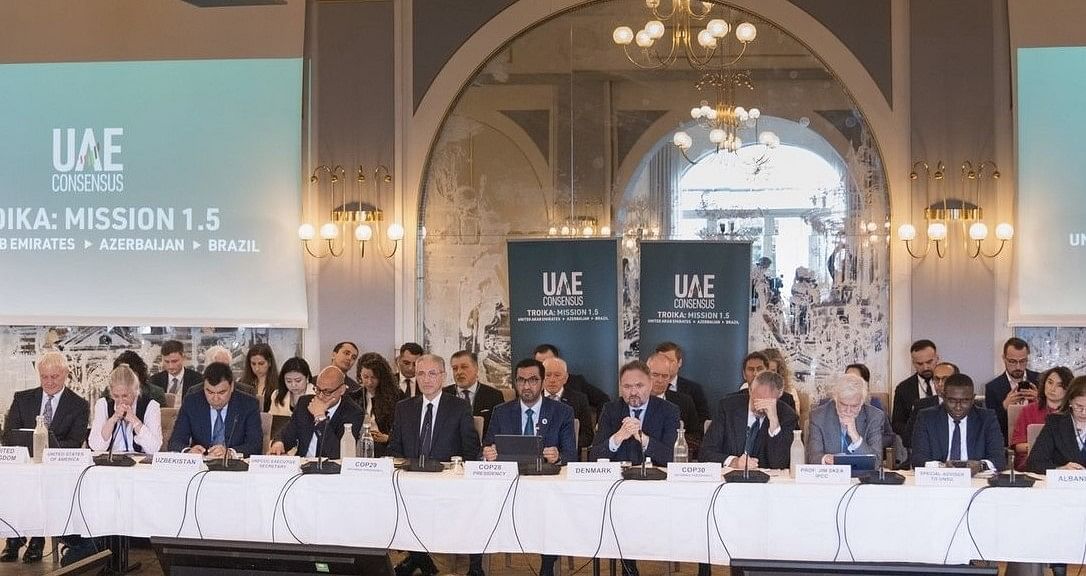
The United Nations Framework Convention on Climate Change (UNFCCC) and the International Energy Agency (IEA) have announced a new phase of partnership, which is a significant step toward addressing the urgent problem of climate change. This initiative, announced by UNFCCC Executive Secretary Simon Stiell and IEA Executive Director Fatih Birol at the Copenhagen Climate Ministerial, marks a crucial step towards fulfilling the energy commitments outlined at the recent COP28 climate summit held in Dubai.
With the main objective of limiting global warming to 1.5°C, the UNFCCC and IEA are set to concentrate their efforts on three crucial areas of action. Firstly, they will focus on tracking and reporting on the energy-related outcomes deriving from the opening of the Global Stocktake at COP28. This will involve closely monitoring progress on ambitious goals such as tripling renewable energy capacity by 2030 and doubling energy efficiency advancements.
Secondly, the organizations will strive to foster consensus on actions geared towards realizing 1.5°C-aligned energy transitions. This requires promoting a gradual shift from fossil fuels, prioritizing fairness and equity, which includes the progressive decrease of coal-based energy generation.
Lastly, the UNFCCC and IEA will extend support for the formulation of the next set of Nationally Determined Contributions (NDCs) under the Paris Agreement. This involves providing technical assistance and policy guidance to ensure that energy-related targets align with the aspirations outlined in the Global Stocktake and the overarching goals of the Paris Agreement.
Central to this collaborative effort is the commitment to enhance data exchange and capacity-building initiatives. By leveraging the UNFCCC's convening power and the IEA's unparalleled expertise in energy data and analysis, the aim is to facilitate informed decision-making and incite concerted global action to address climate change.
Reflecting the views of Mr. Stiell, the Executive Secretary of UNFCCC, the critical task at hand is to transform promises into concrete measures. This necessitates a collective effort to accelerate efforts in reducing greenhouse gas emissions across all sectors while effecting a seamless transition towards cleaner energy sources.
Dr. Birol, the Executive Director of the IEA, emphasized the significance of collaboration in ensuring that the commitments made at COP28 translate into substantive action. He underscored the need for just, equitable, and affordable energy transitions that align with global climate objectives.
Moreover, both entities reiterated their commitment to fostering positive outcomes through the COP-IEA High-Level Energy Transition Dialogues. These dialogues serve as a platform for international climate and energy leaders to exchange ideas, share best practices, and chart a course of action in the lead-up to COP29 in Azerbaijan.
As part of their concerted efforts, the UNFCCC and IEA will strengthen cooperation on greenhouse gas emissions data and national data capacity building. This includes organizing workshops to enhance national energy data capabilities and promote transparency in energy and climate decision-making processes.
By leveraging their respective strengths and resources, the two organizations are poised to drive meaningful progress towards a sustainable and resilient future for all.















